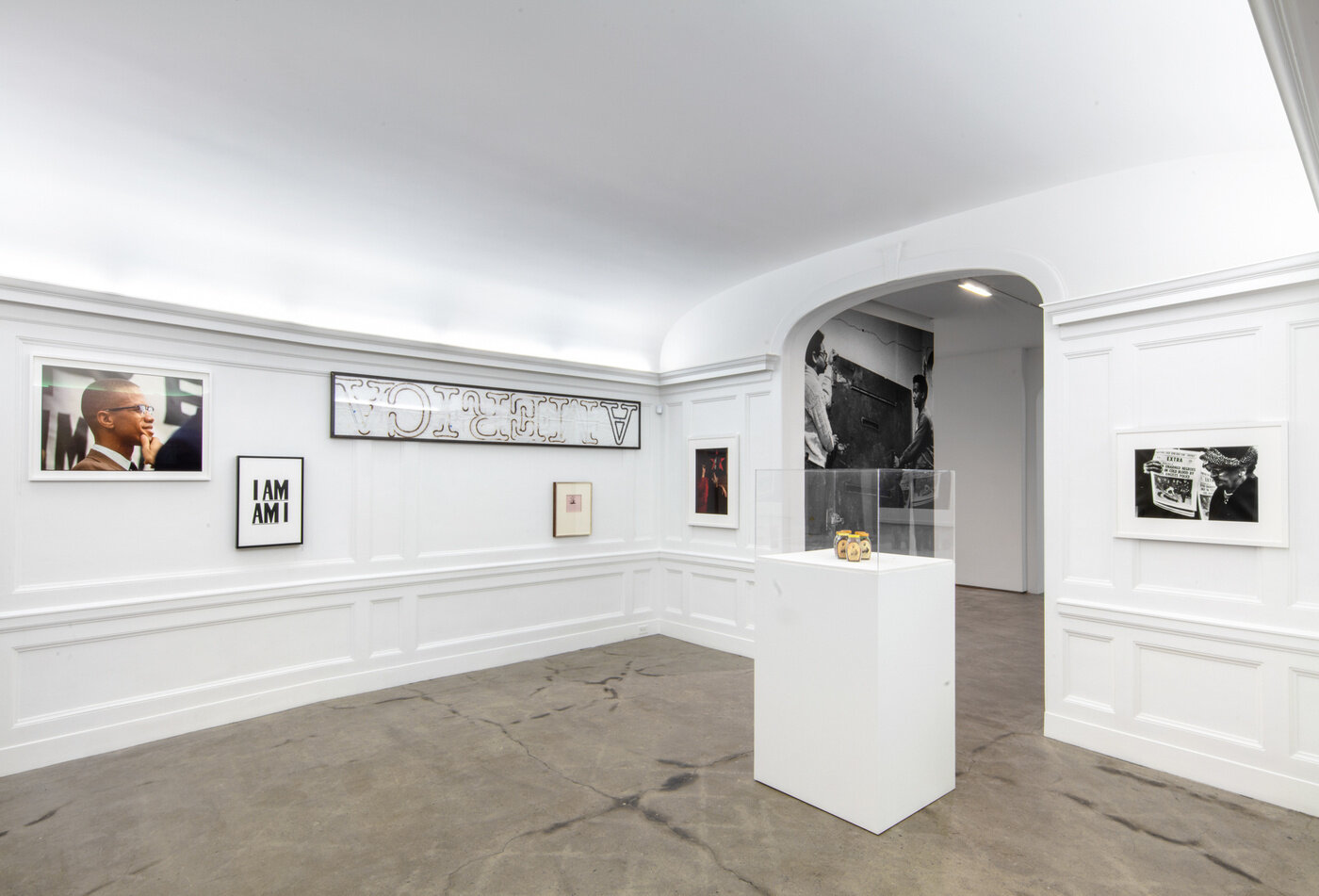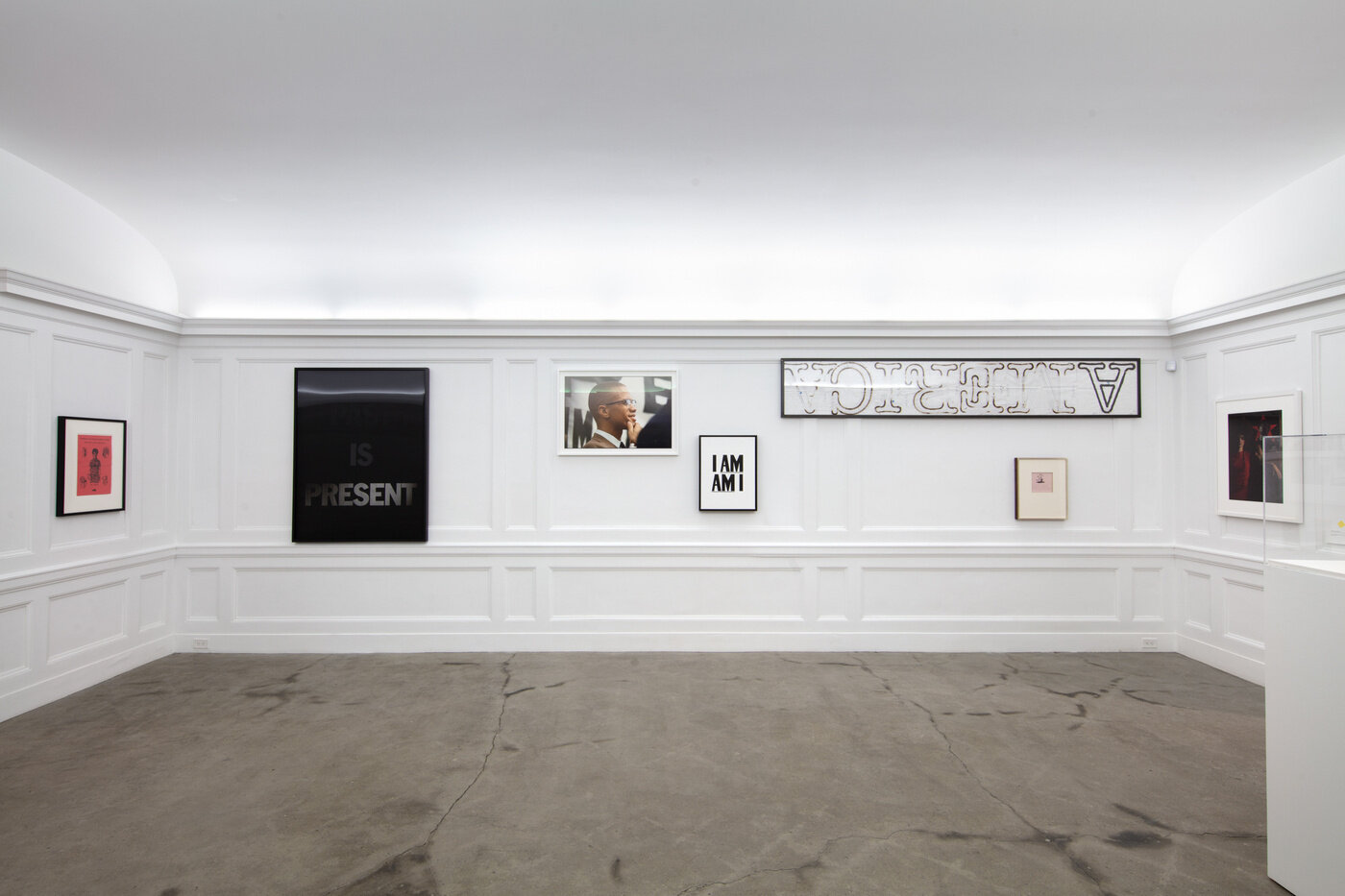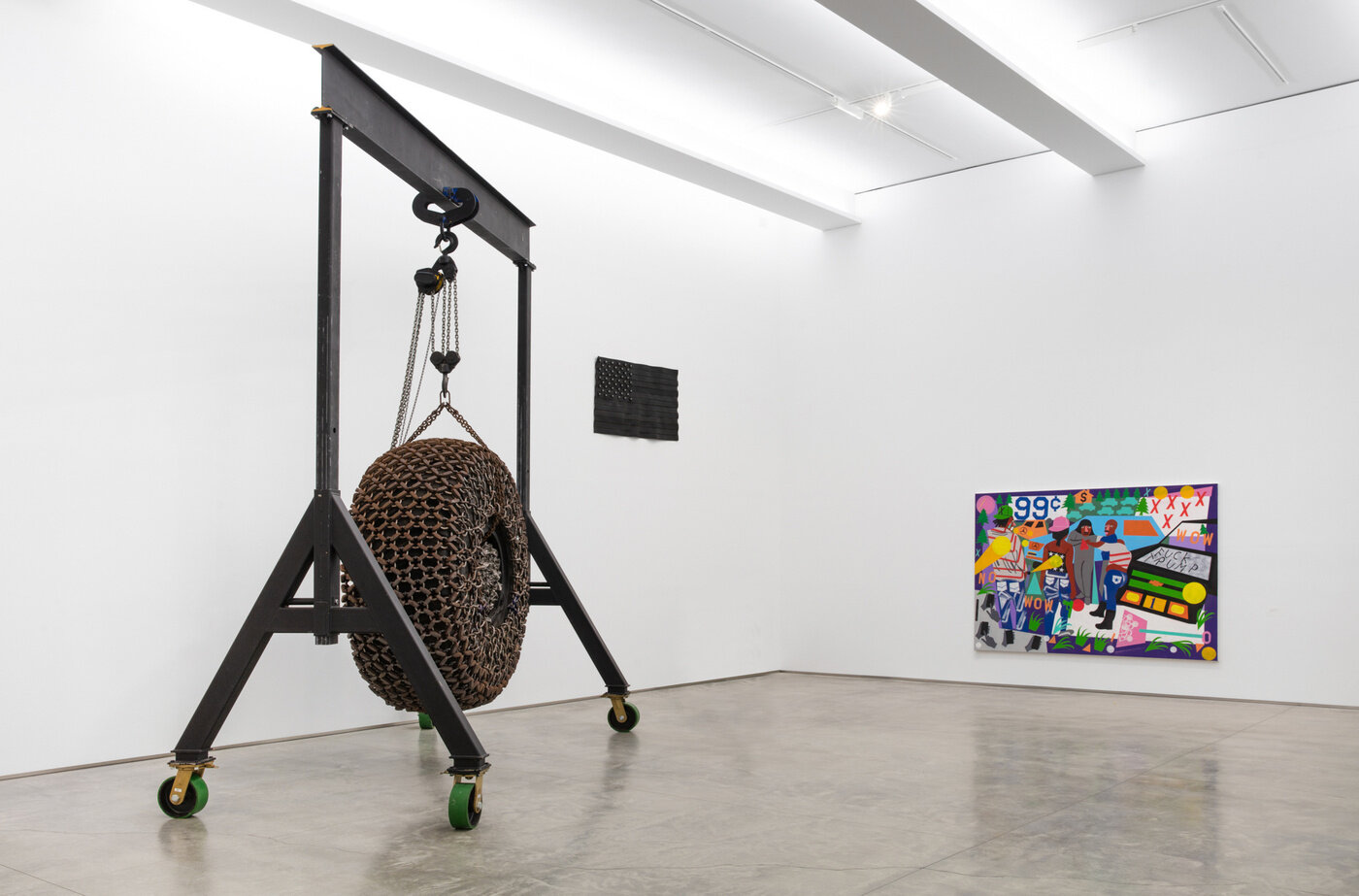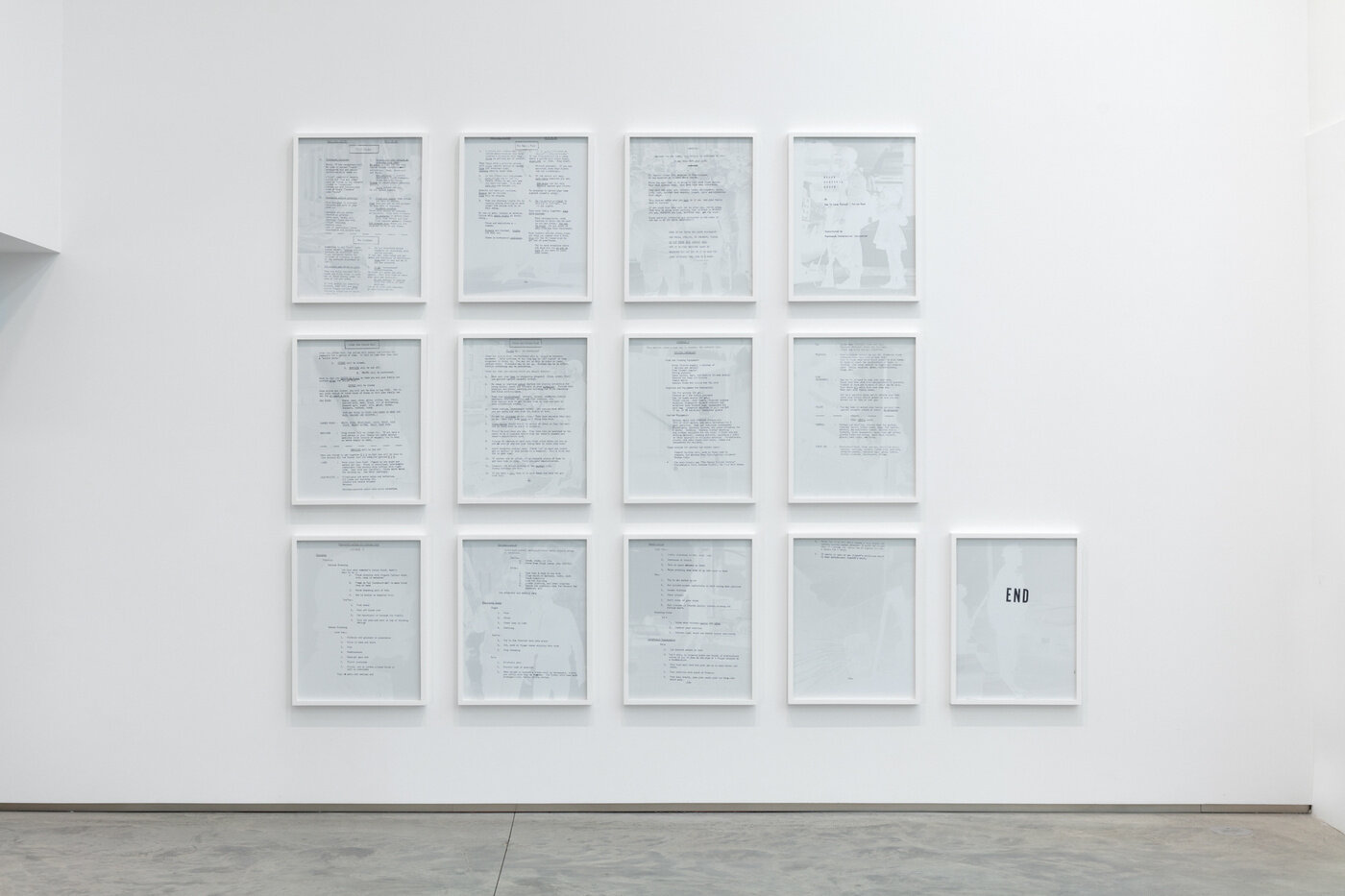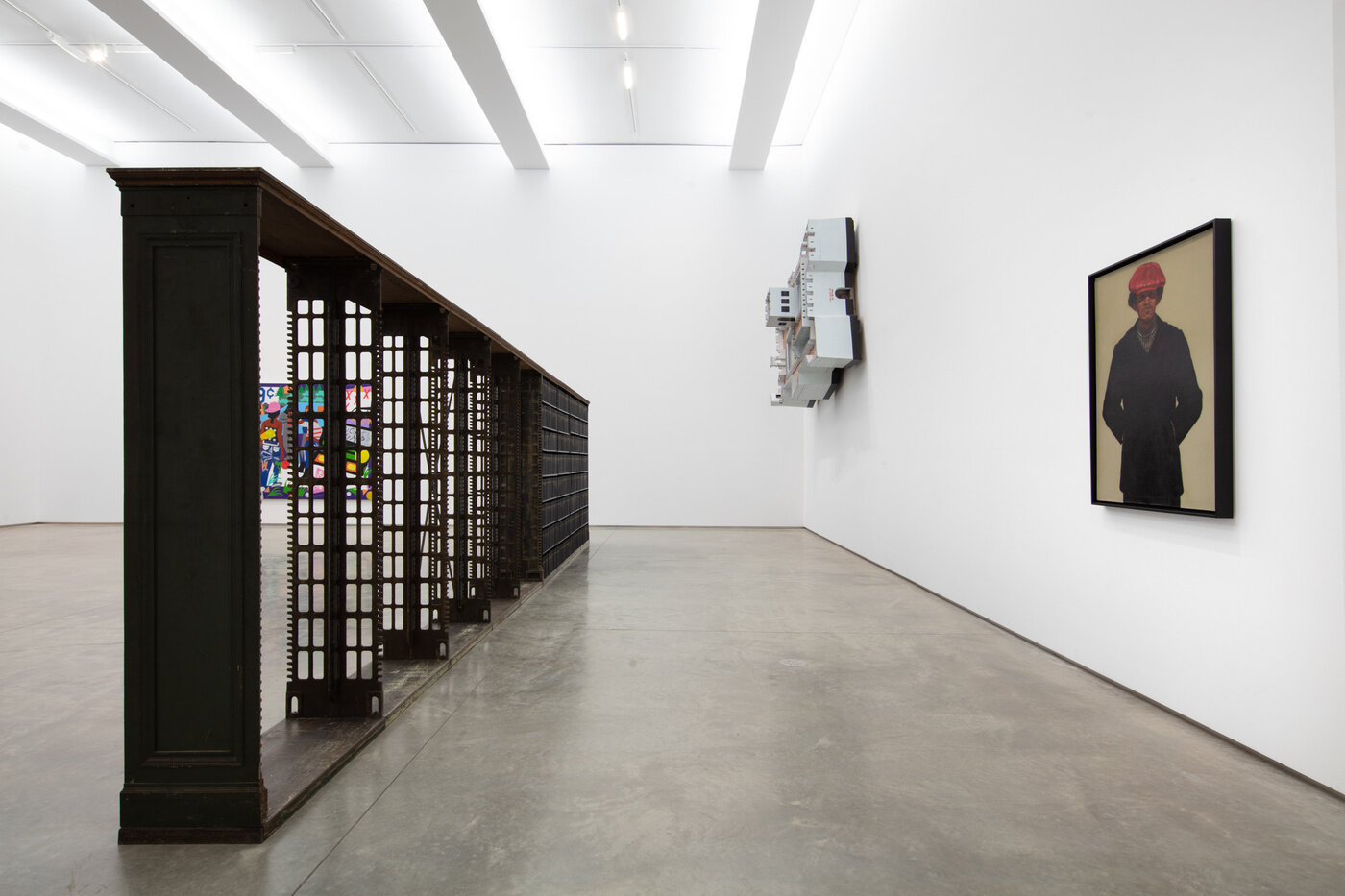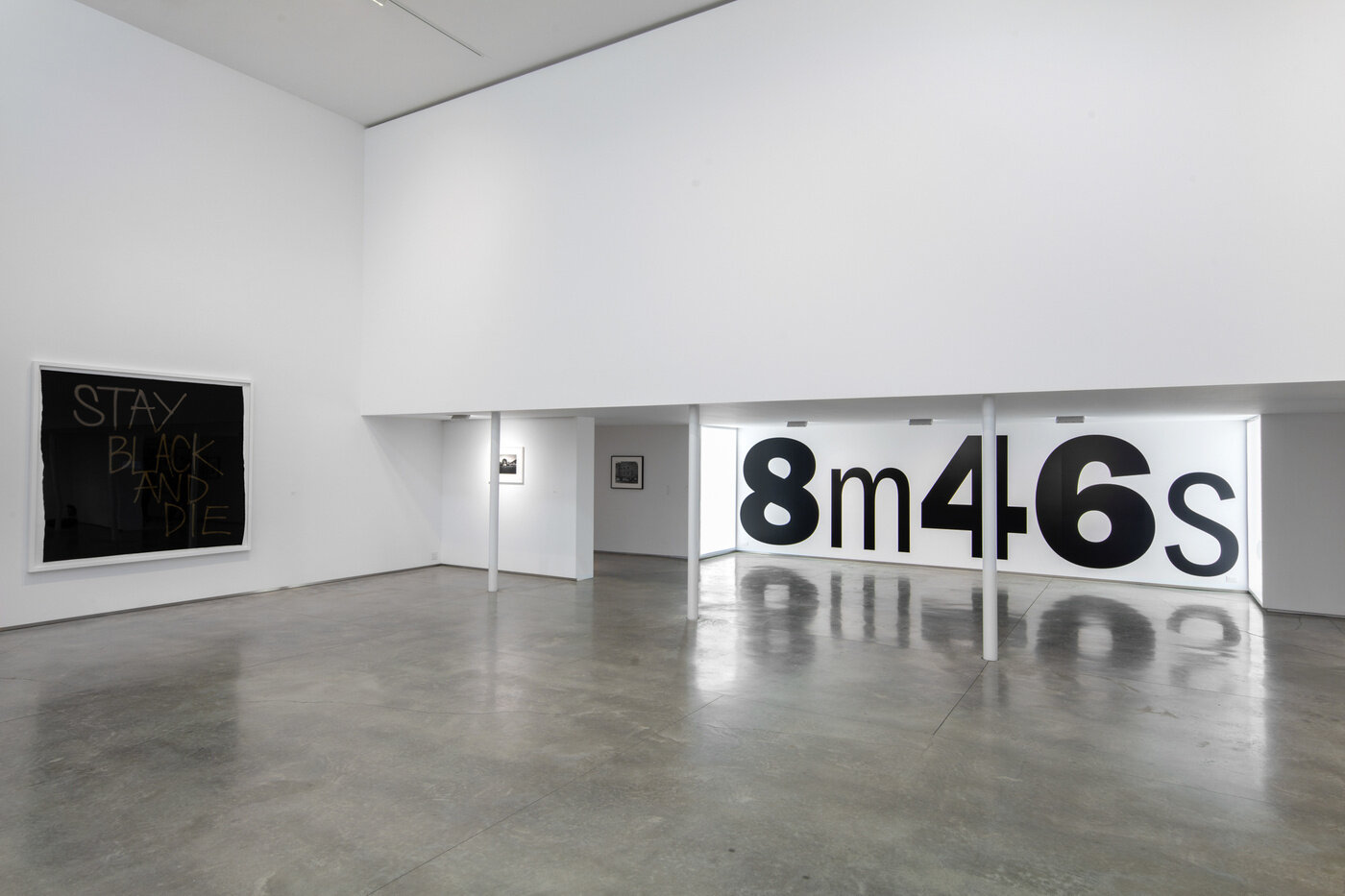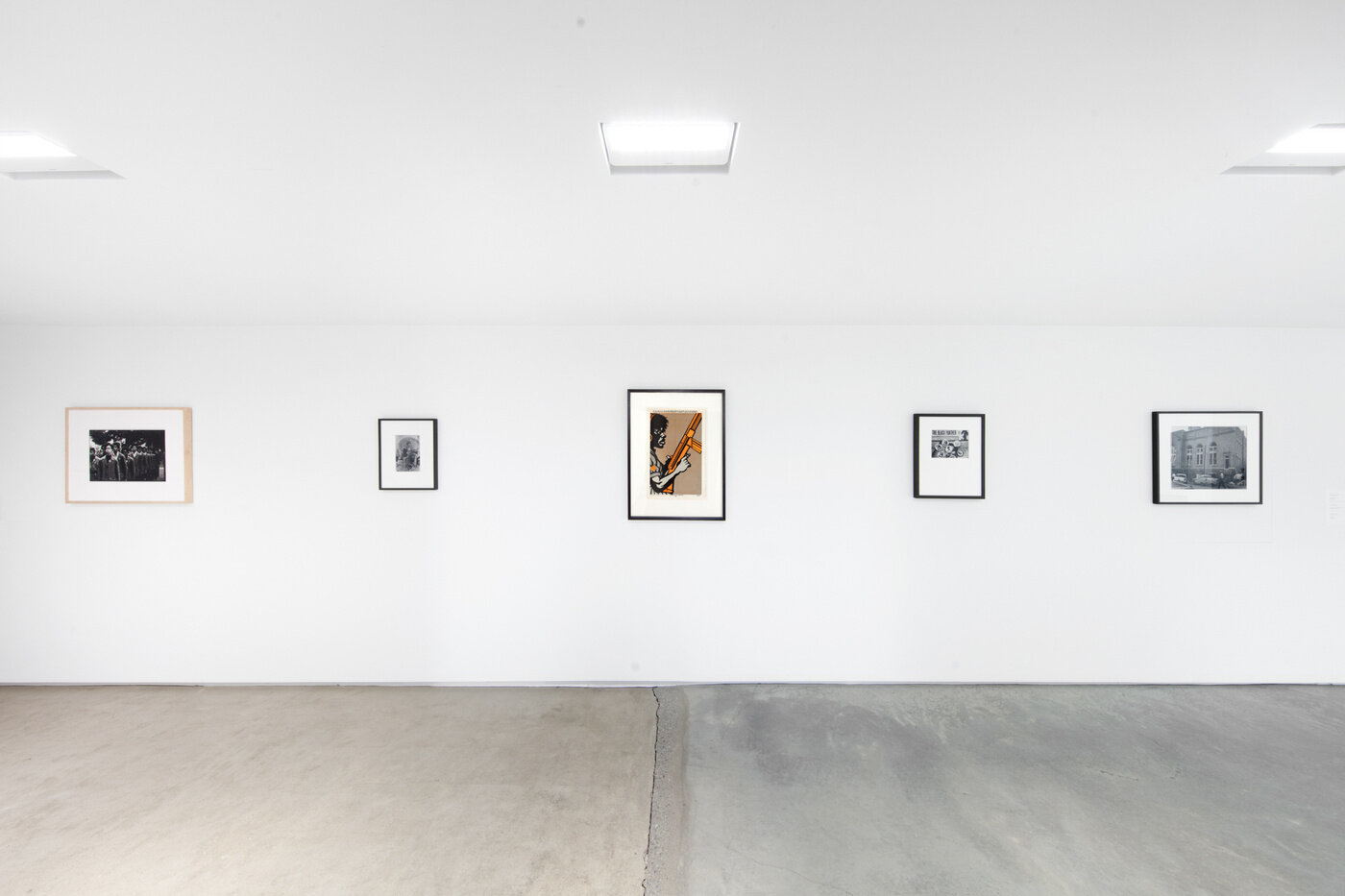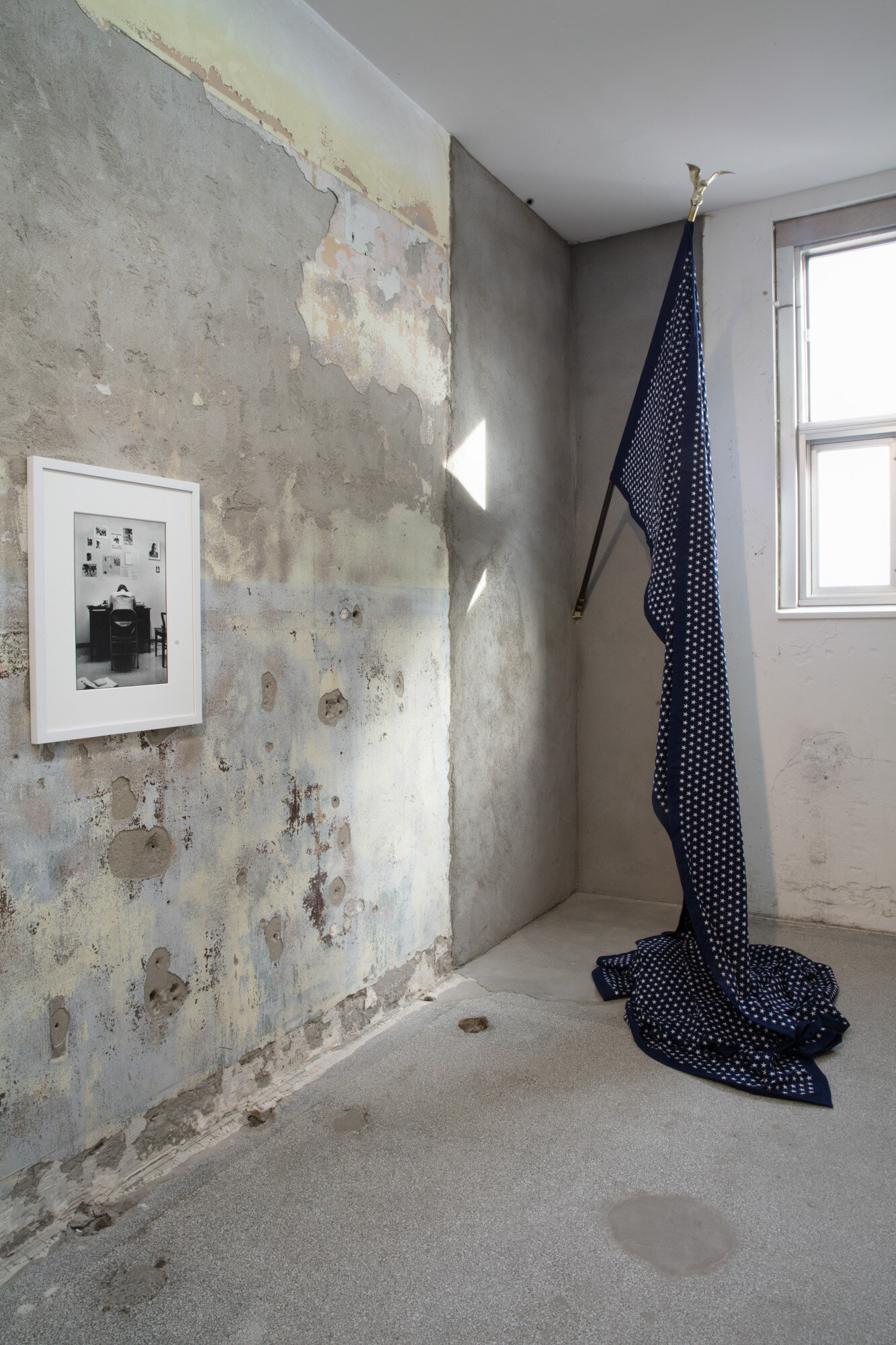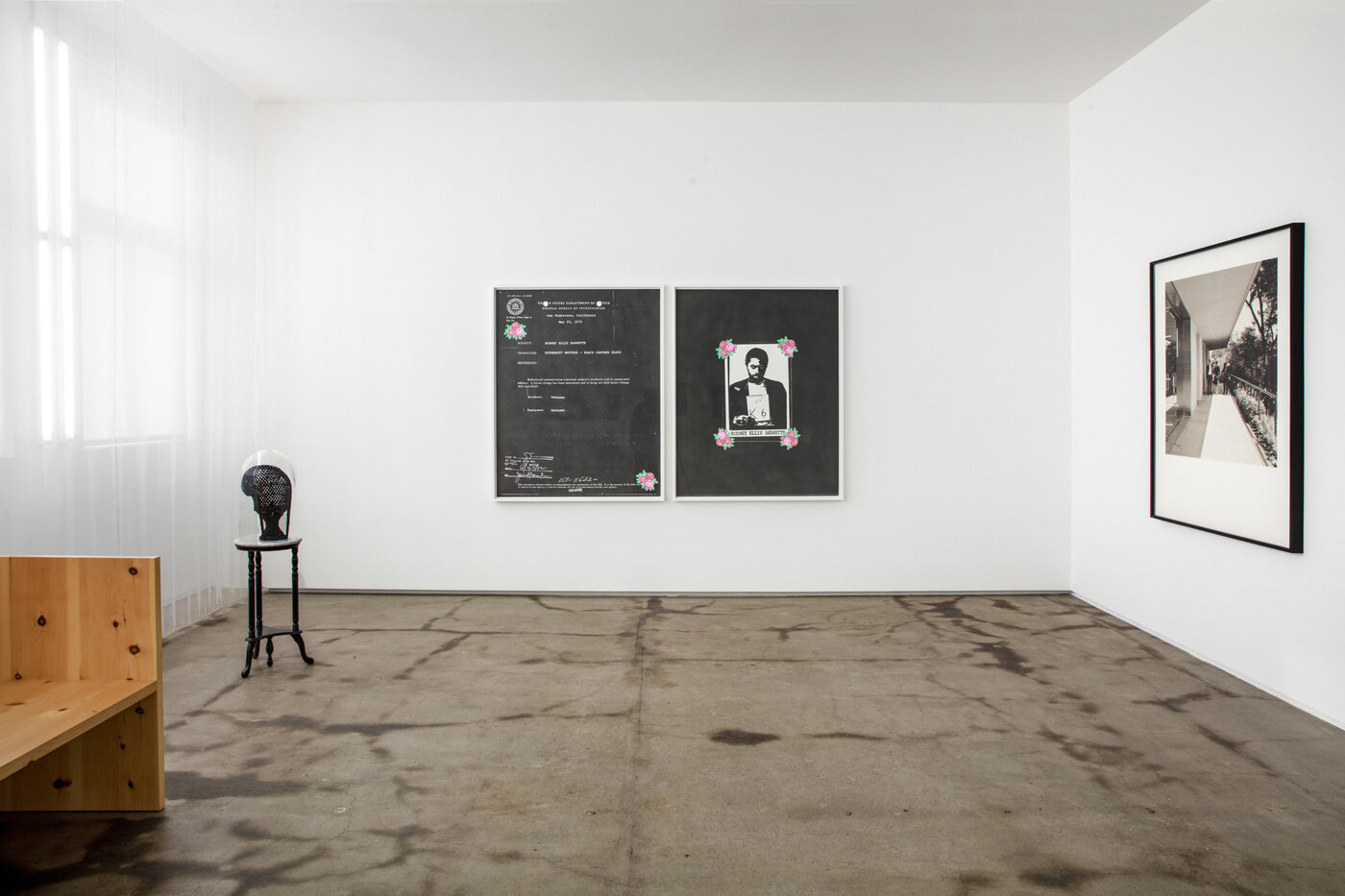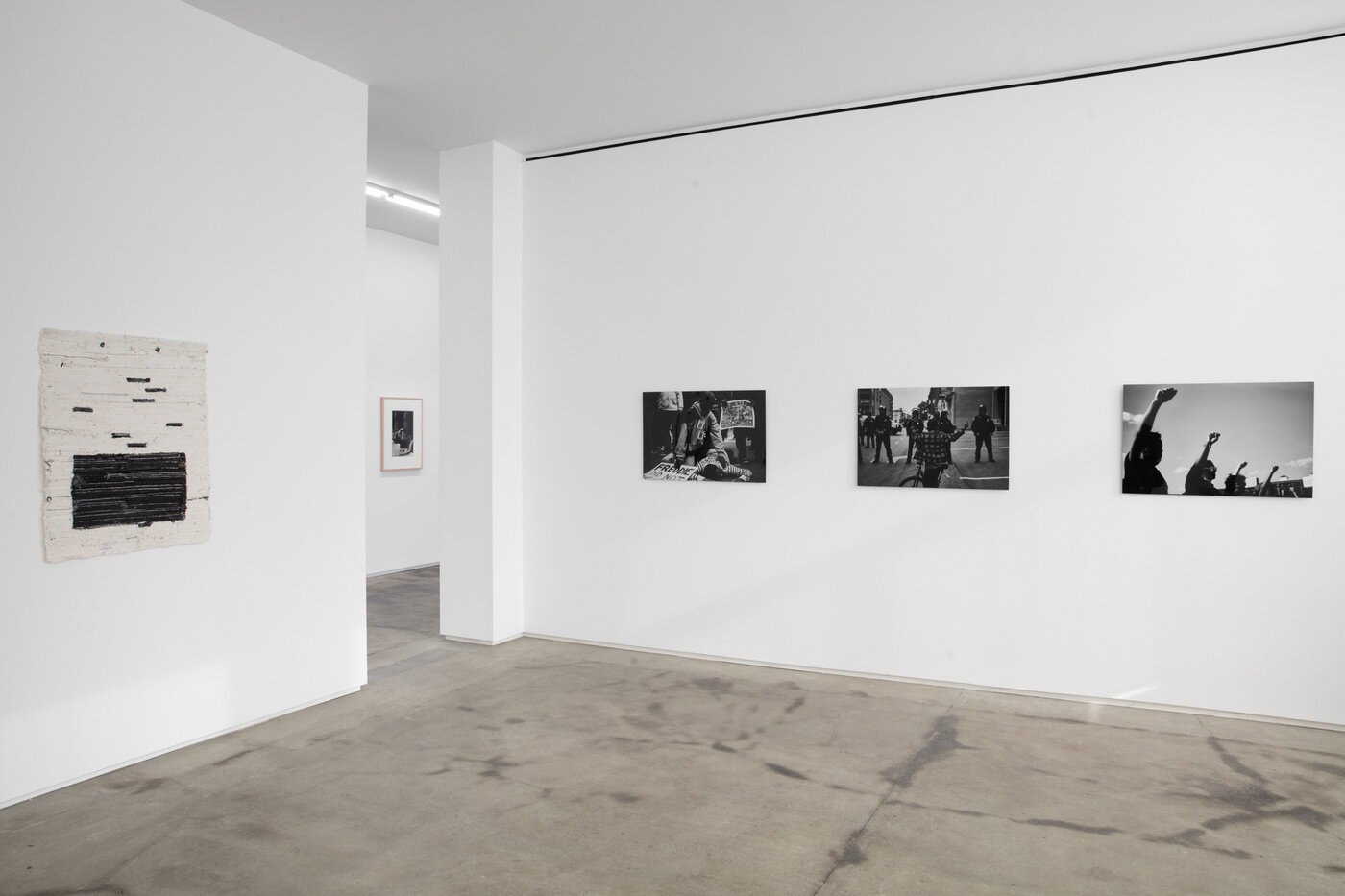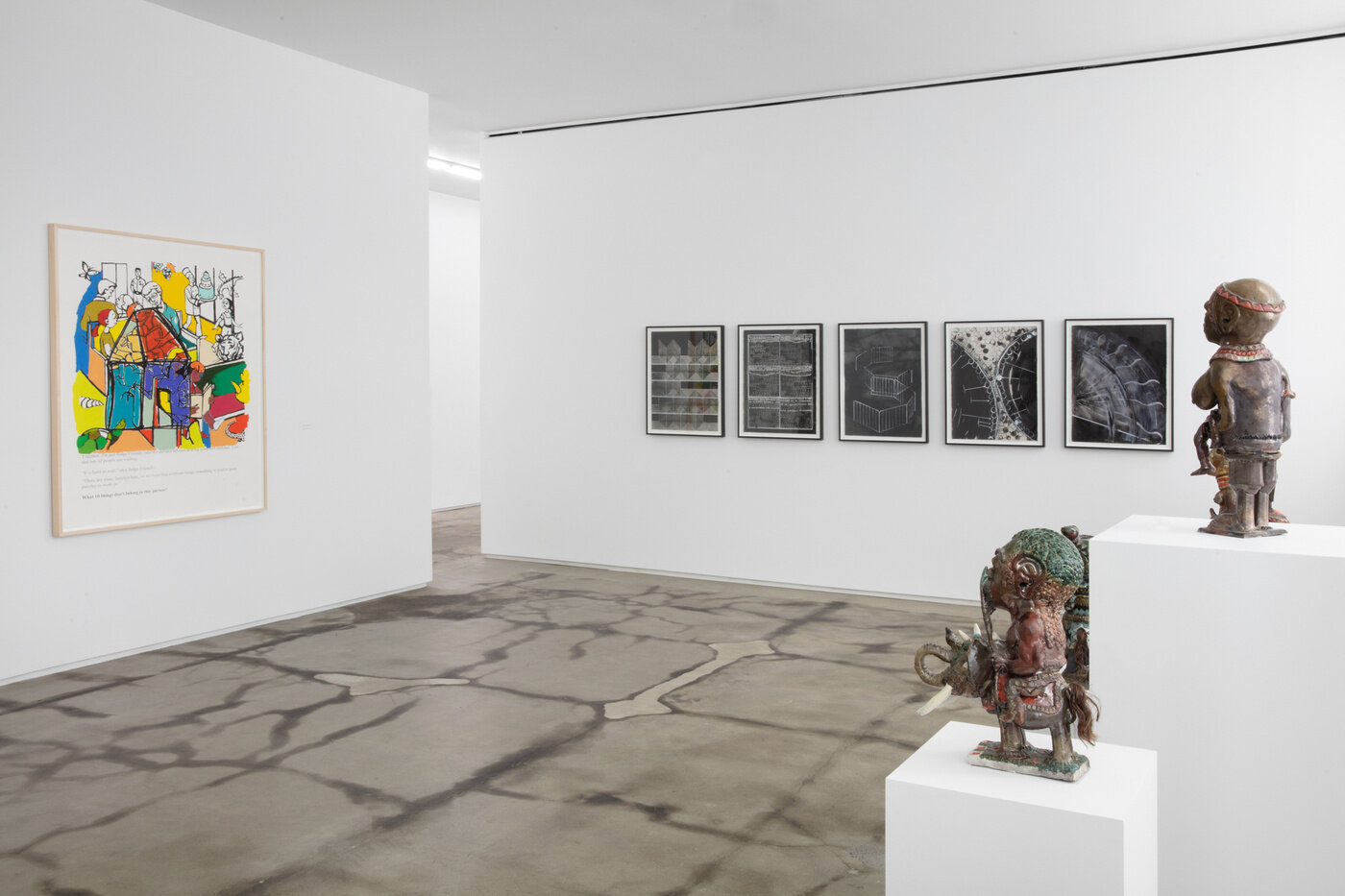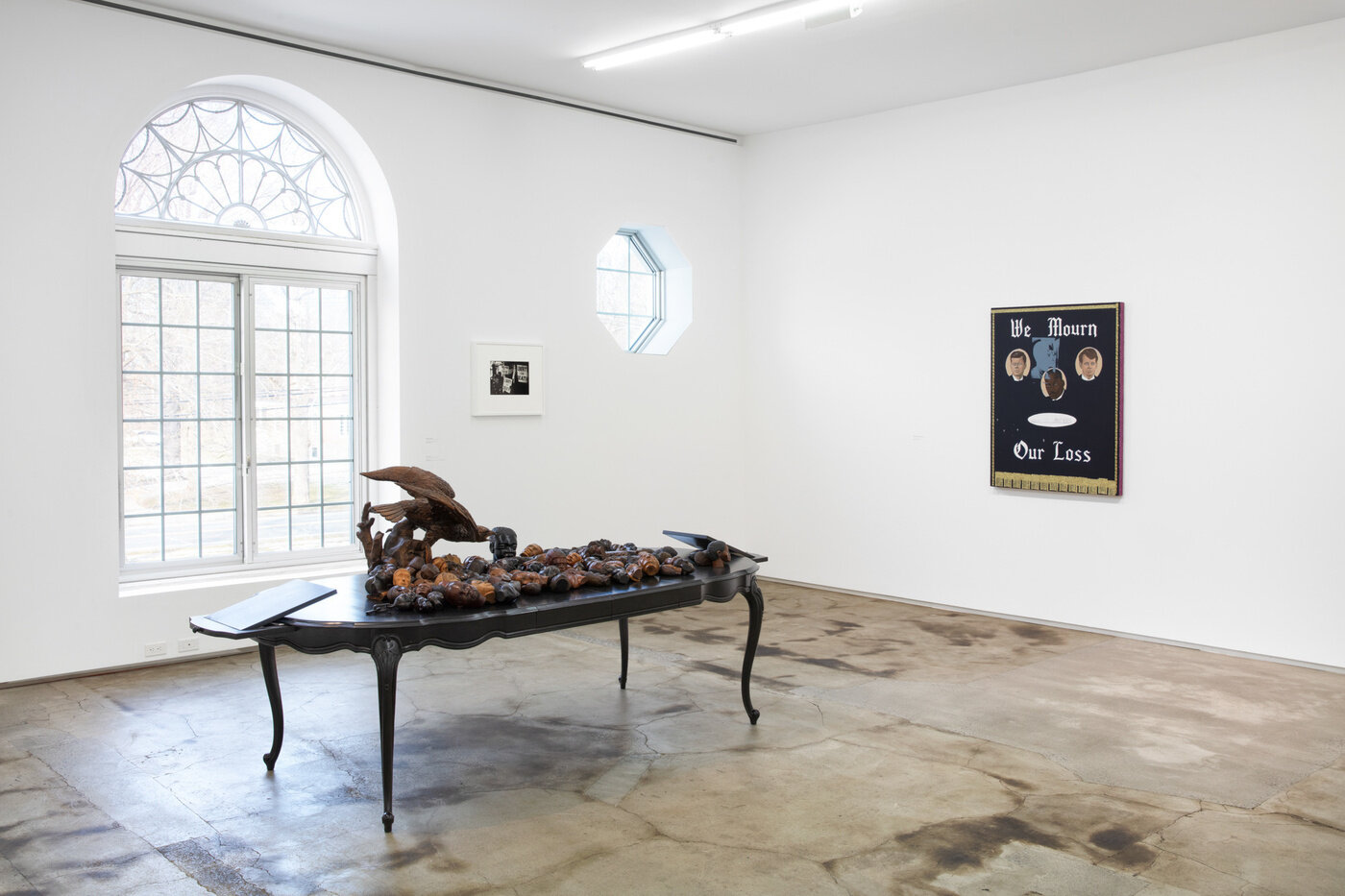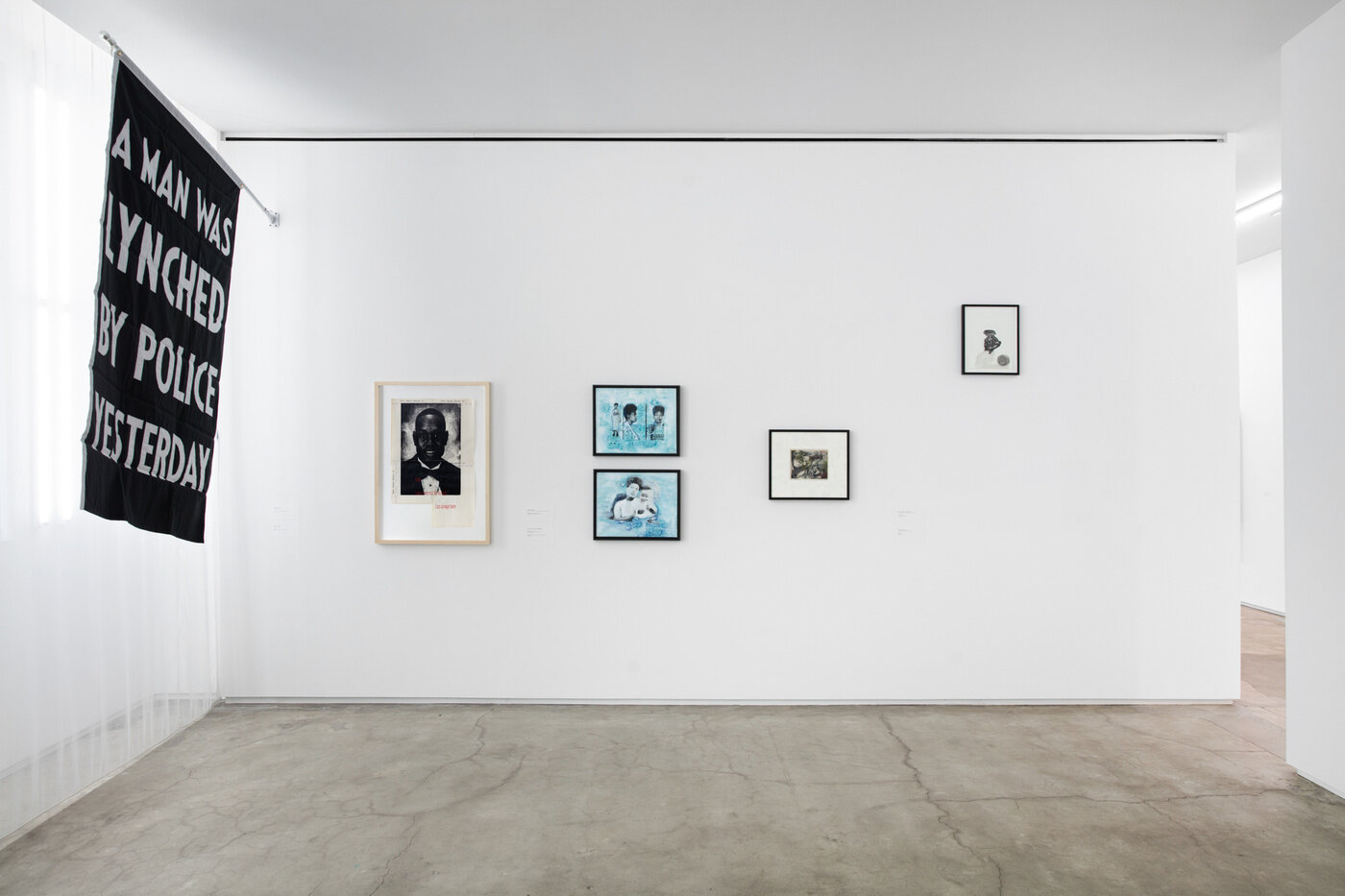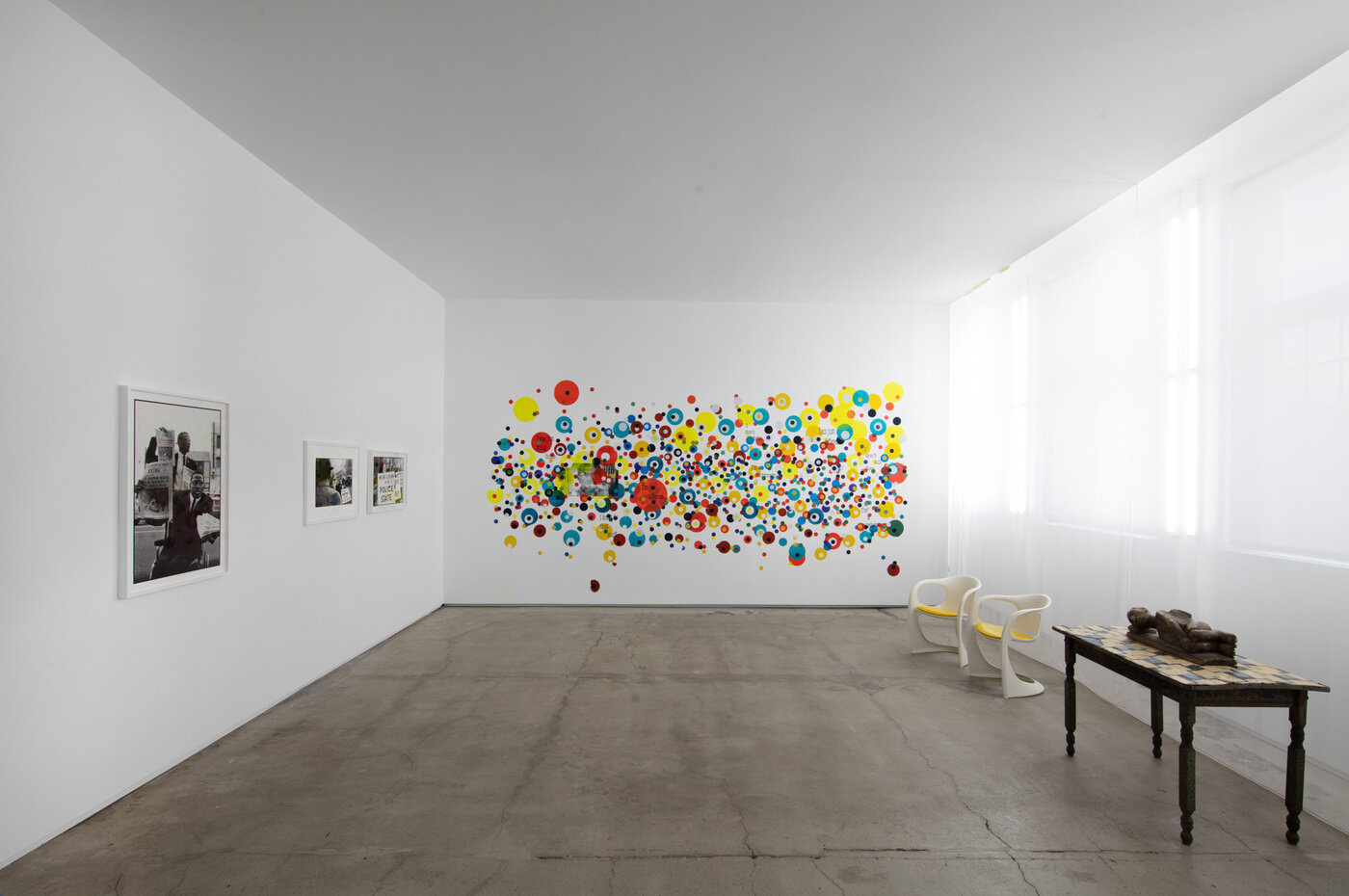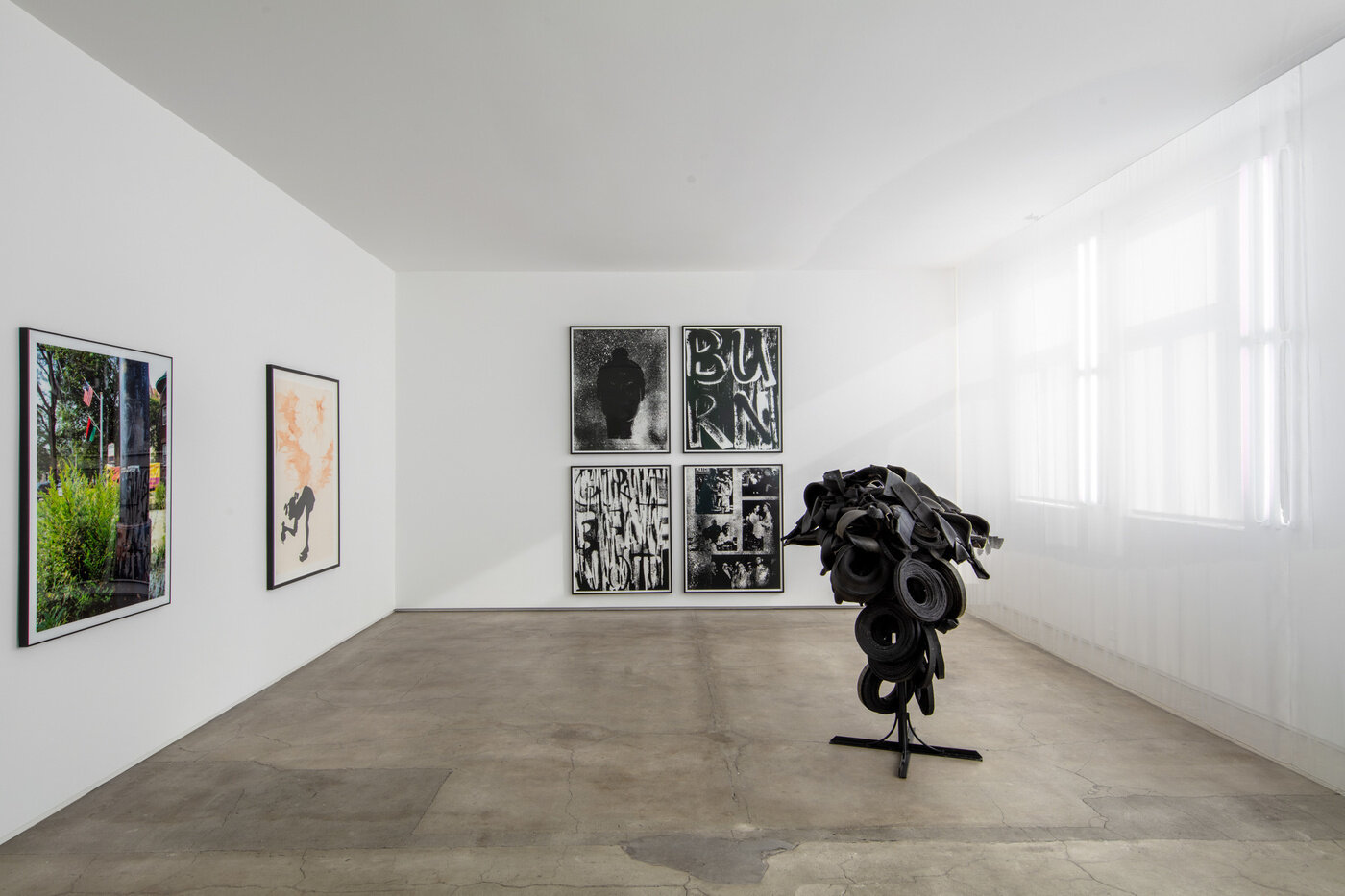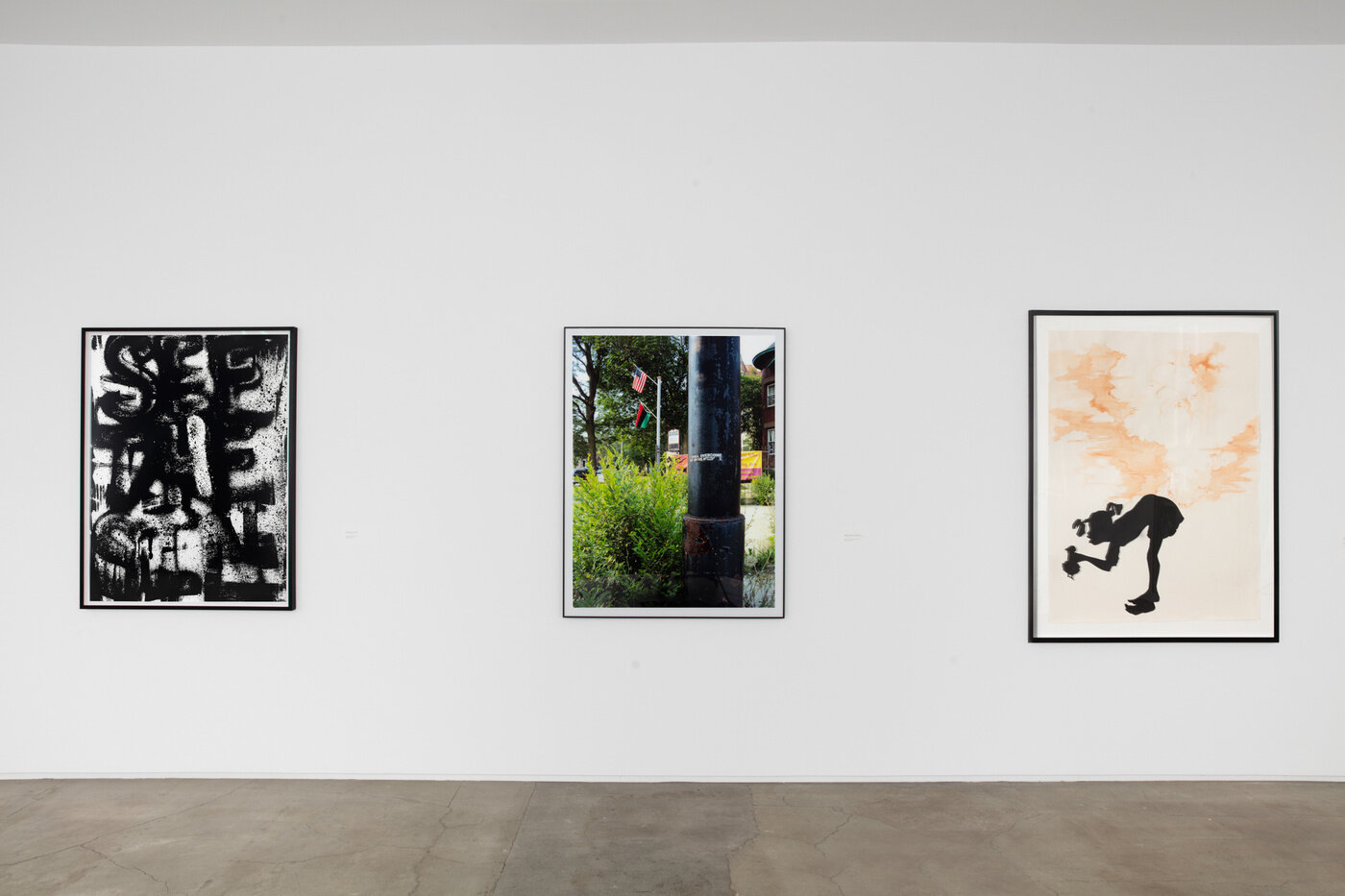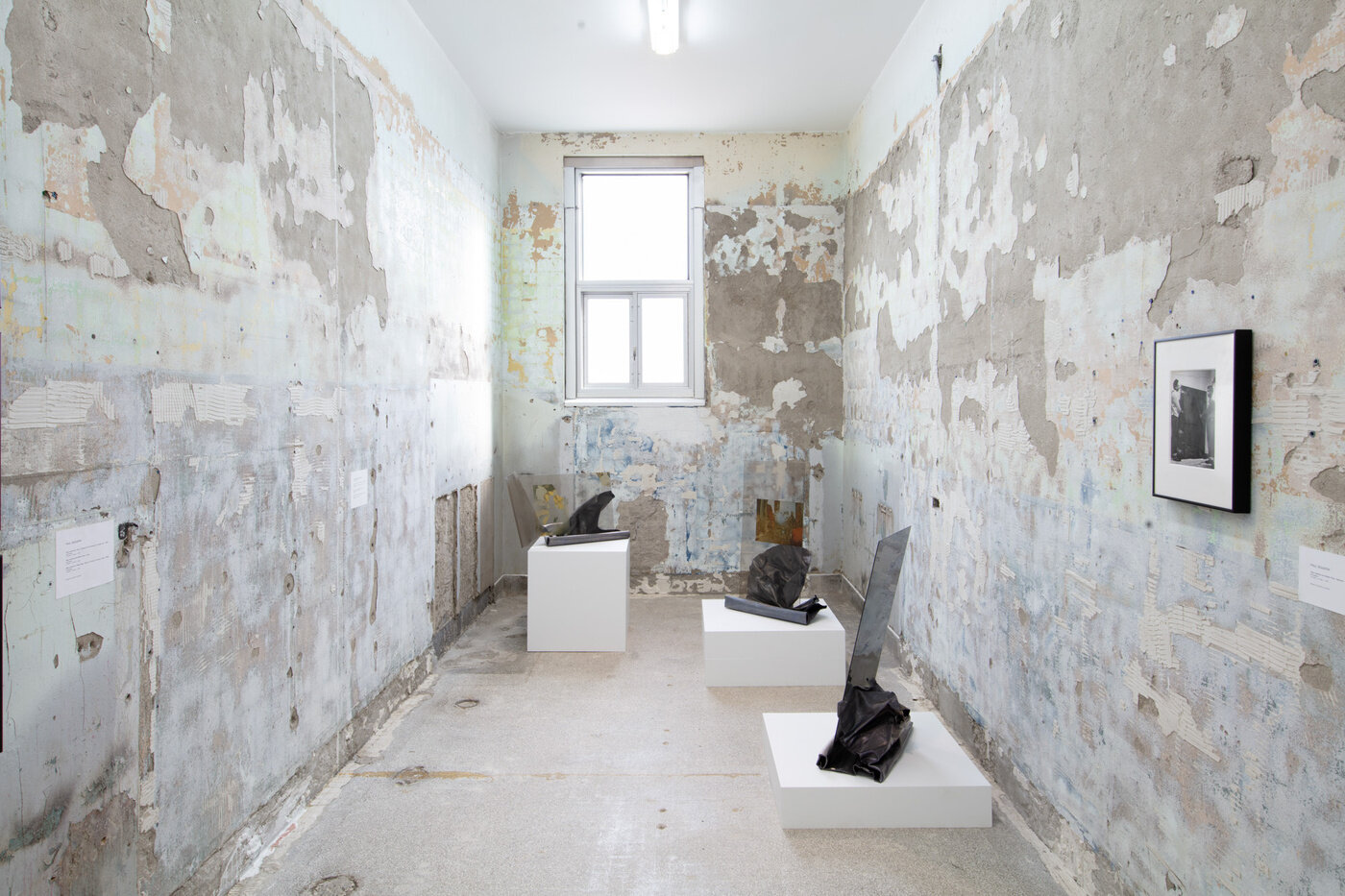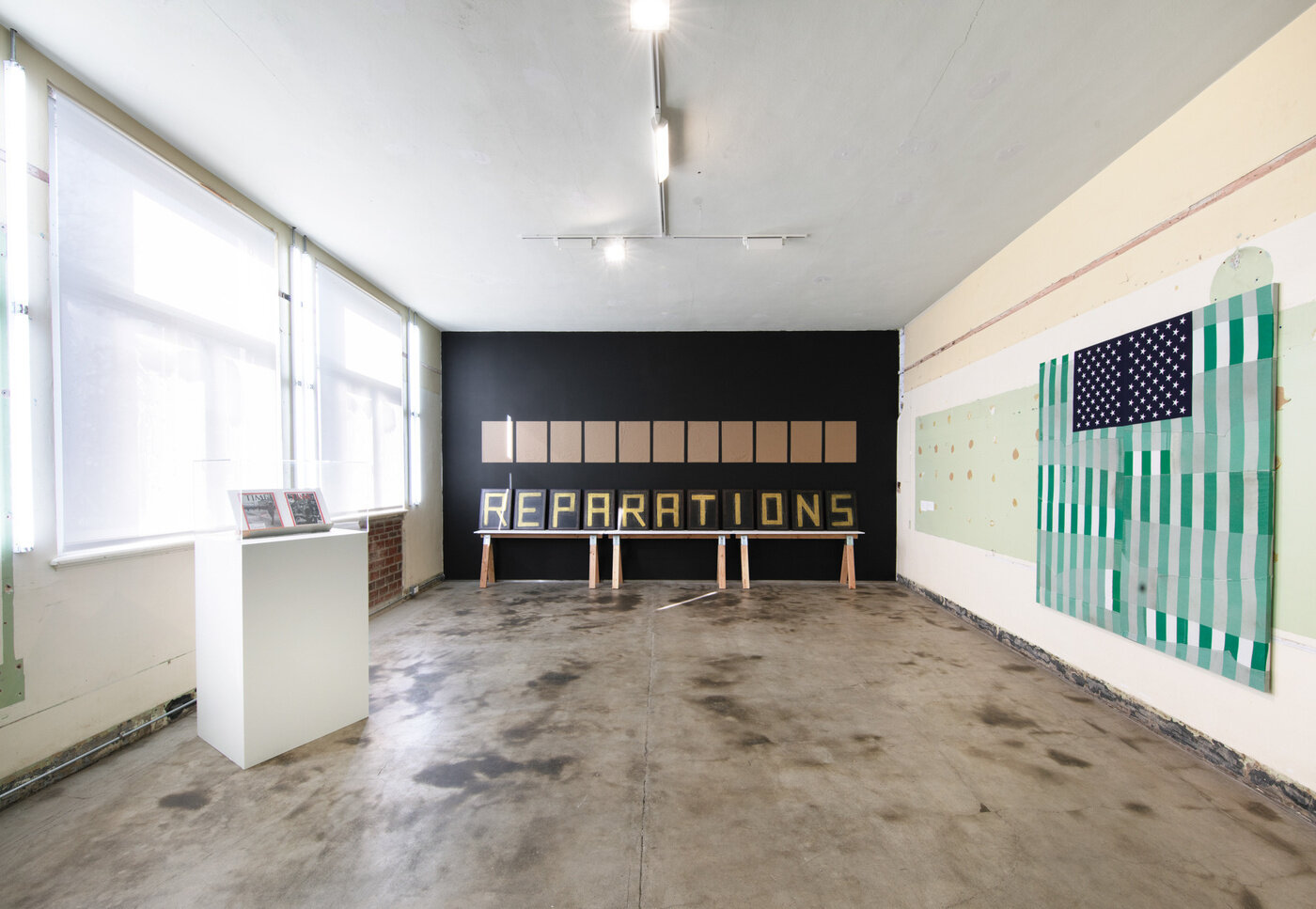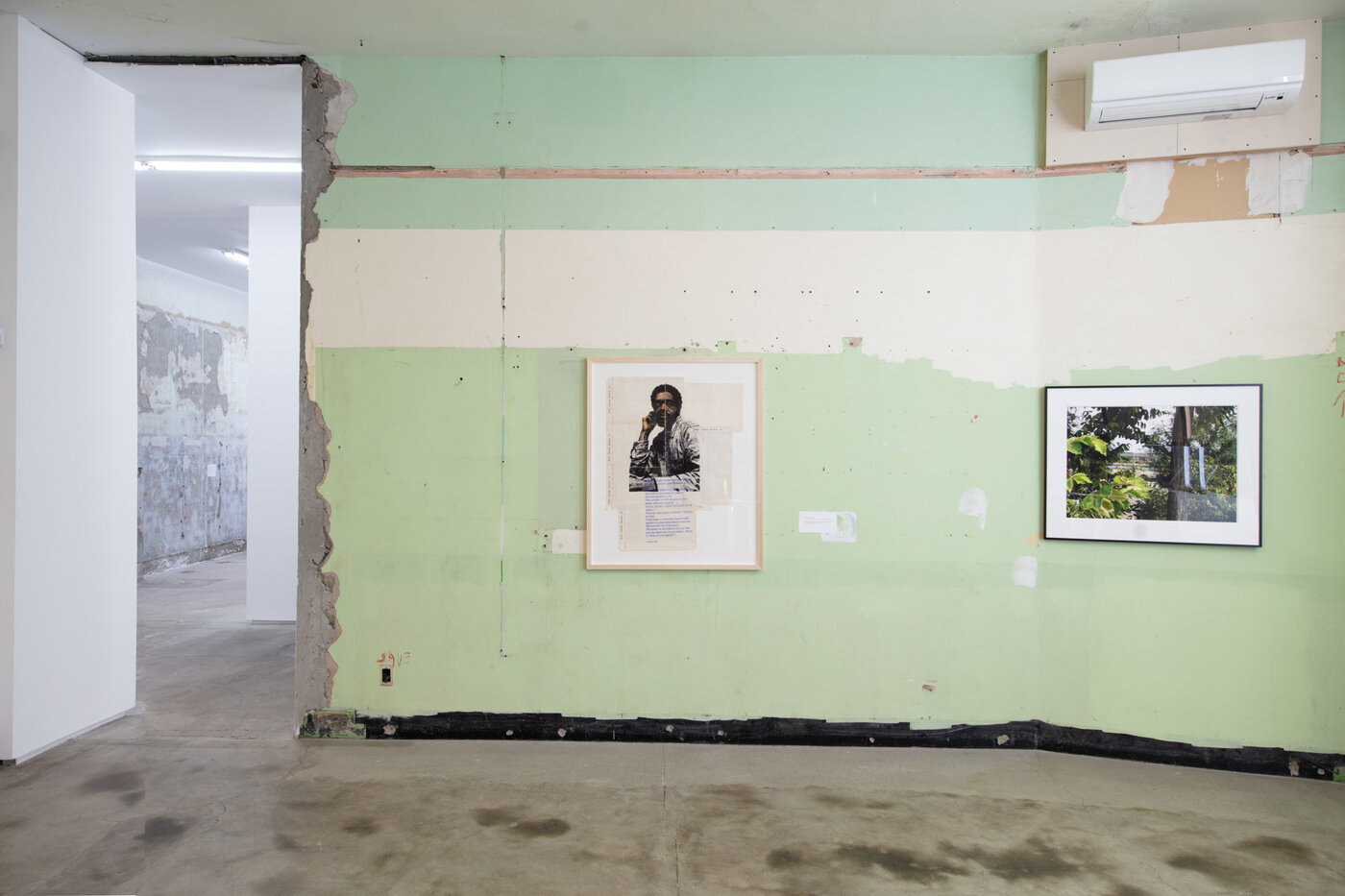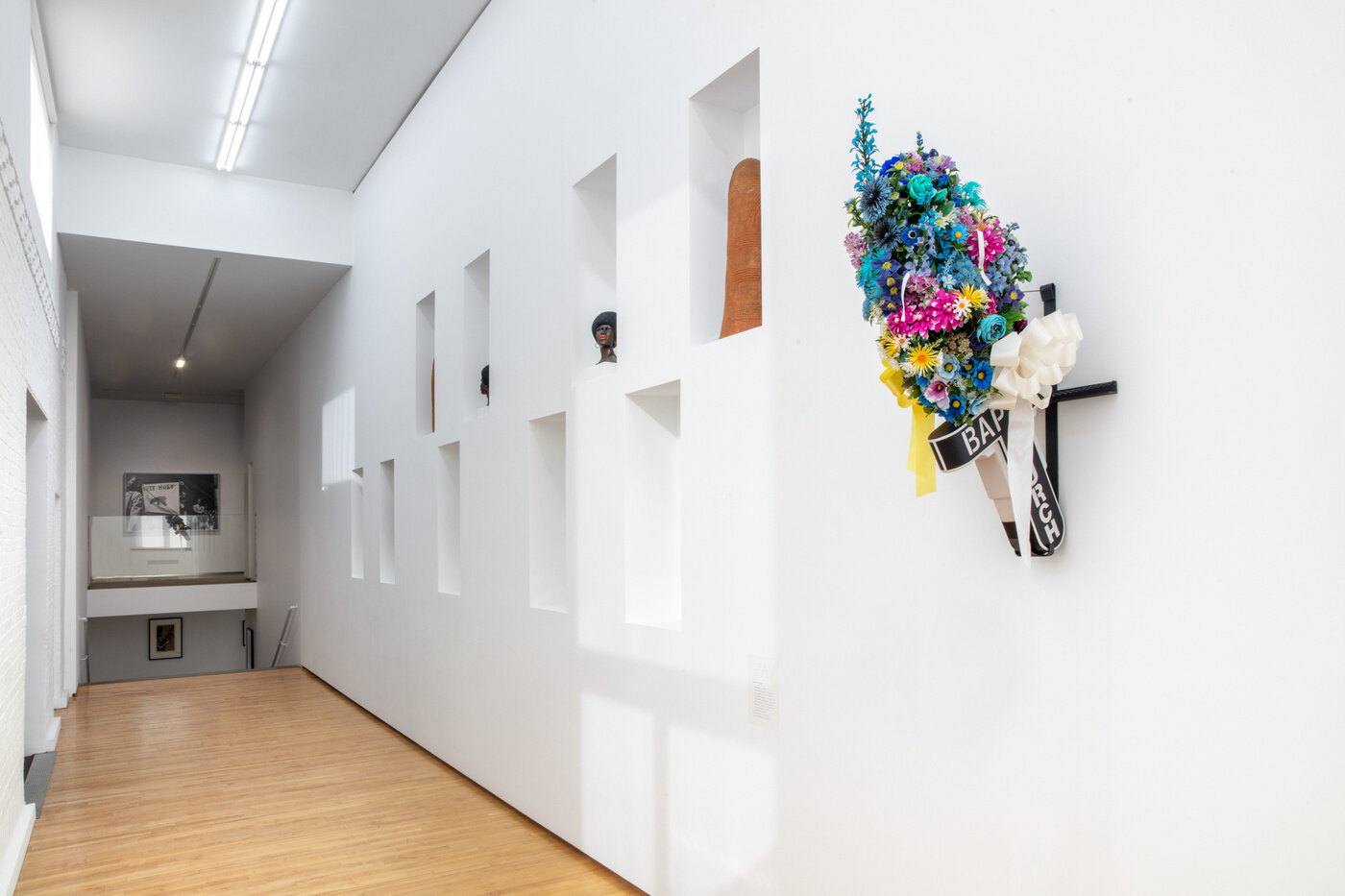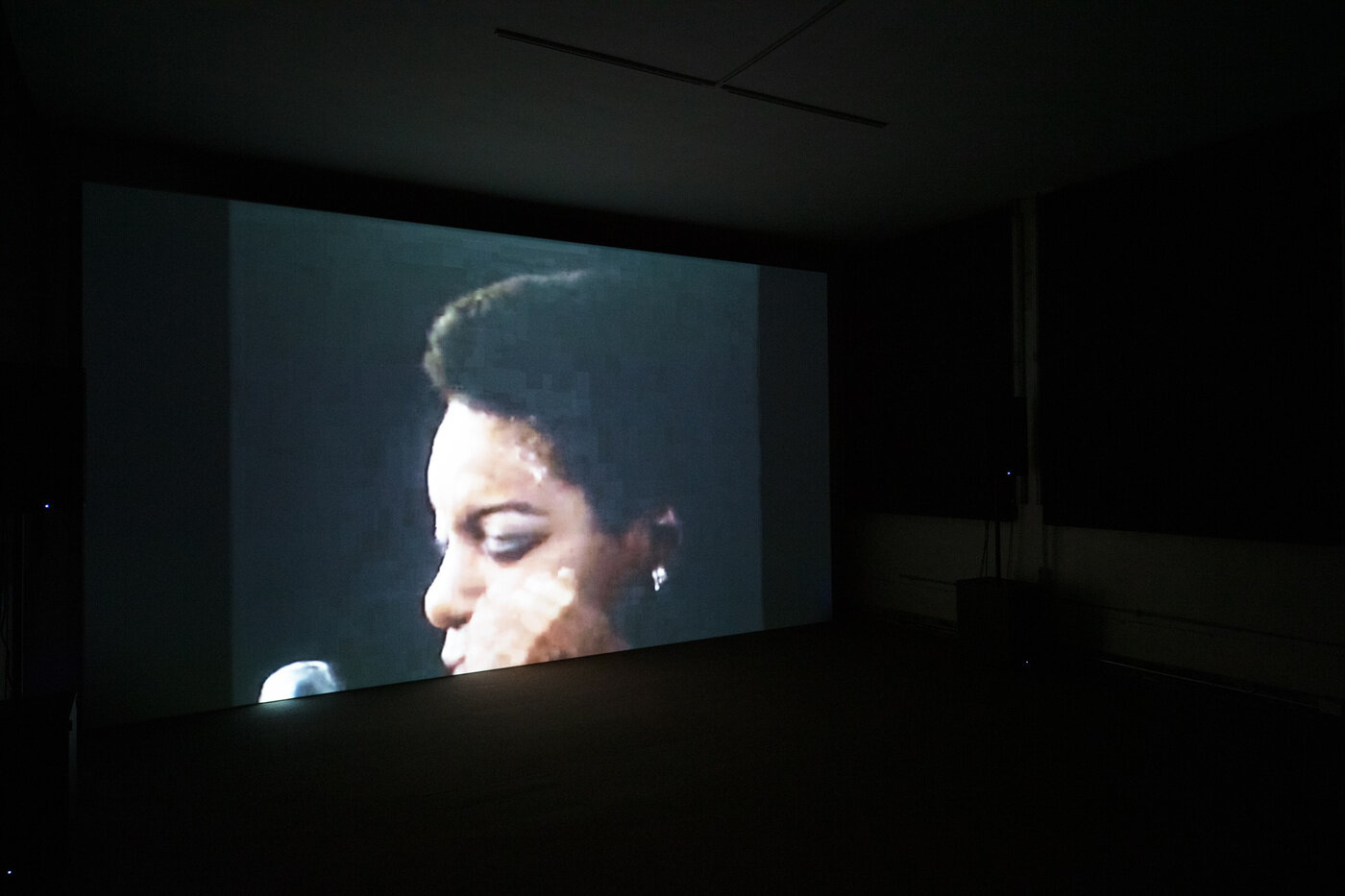This Tender, Fragile Thing
Works (Tap to zoom)
Press Release
This Tender, Fragile Thing
January 15 – April 30, 2022
Open Saturdays, 11AM–6PM
The School, Kinderhook, NY
Preview the full exhibition here
STATES OF BEING | READING ROOMS
Black Panther Black Community News Service Vol III No. 21
Black Panther Black Community News Service Vol III No. 23
Black Panther Intercommunal News Service Vol VI No. 23
Black Panther Intercommunal News Service Vol VI No. 25
STATES OF BEING | INTERVENTIONS
This Tender, Fragile Thing Partner Organizations
Jack Shainman Gallery is pleased to present This Tender, Fragile Thing, a group exhibition on view through April 30, 2022. The show shines a contemporary lens on the gallery’s 2005 exhibition The Whole World is Rotten, which juxtaposed Black Panther materials from the gallery collection alongside works by contemporary artists. This creative exchange highlighted the culture of the 1960s and the development, goals, and achievements of the Black Power movement – the call for people to define themselves and the world on their own terms. By expanding this concept across the 30,000 square feet of The School, the exhibition offers an opportunity to broaden the dialogue and display these pieces in an environment that encourages contemplation and learning.
In an issue on view from The Black Panther dated July 3rd, 1971, the headline reads “PROGRESS! PROGRESS?”. An article sharing the same title goes on to discuss the realities of media in the late 1960s and early 1970s, underscoring the emergence of the Black actor on screen. While there was an acknowledgement of progress in the casting of Black actors in anti-stereotypical roles, there was an equal consideration of a problematic history in place. Above all, the article holds an even more critical awareness of the necessary work that remained to affirm these actors’ presence and representation onscreen. (1)
Reflecting on the term ‘progress’ found so deftly and conspicuously in this particular issue, and the relationship it holds to the current exhibition on view, it would be a missed opportunity not to investigate the origins of the term in its linguistic form.
Progress: a noun that asserts an action of going on, advancing, or moving forward. As a verb, a once obsolete term in the 18c, but resurged and retained in the newly formed America in the wake of its liberation from Britain. Ultimately, to mean in advance on the line of development or improvement. Etymologically, pro- (forward), -gradi (to step, walk, “a step.”) (2)
A revisitation, if not reconsideration, of the 2005 exhibition The Whole World is Rotten, Jack Shainman Gallery’s This Tender, Fragile Thing aims to question these same, enduring inquiries in both their greater sociopolitical context as well as the micro-framework of the show itself. What has changed these last 15 years, and to what extent have we progressed since?
While works by Coco Fusco, Arthur Jafa, Stephen Shames, Radcliffe Bailey, and Lawrence Weiner, amongst others, carry over from the first iteration of the show, new participants such as Adam Pendleton expand the narrative. Pendleton’s concept of Black Dada— “a way to talk about the future while talking about the past. It is our present moment…”—is visually manifested further by documentary photographs found throughout the show. (3) While Gordon Parks and John Simmons recorded the Civil Rights movements of the 1960s, Devin Allen captured images of Baltimore in 2015 after Freddie Gray’s death, and Ada Trillo memorialized the protests in Philadelphia that followed George Floyd’s murder in 2020.
Entering the main space, the viewers’ attention is immediately brought to Theaster Gates’ immense sculpture Walking Prayer. A vintage cast-steel Carnegie library shelving unit houses over 2000 historically published books on the Black experience. Gates rebound each book in black, with single words or phrases embossed in gold, culled from the contents in lieu of titles. As viewers move around the shelves in order to read them, the words and sounds begin to offer a long form poem or stream of consciousness on Black identity, with near-infinite possibilities based on the syntax or arrangement. While the filled stacks generate an awareness of the archive of Black knowledge, a section of shelves left empty also pointedly leave space for all that is unwritten – whether it be yet discovered or, perhaps, held back for safeguarding.
Alongside several other video works, Arthur Jafa’s film Love is the Message, The Message is Death brings together original and appropriated footage that juxtaposes police brutality with the representation of Black pride and beauty. The resulting montage represents the complexities and nuances of Black identity, ultimately rejecting the often whitewashed, mainstream portrayal of the Black experience.
Kerry James Marshall’s Dailies from Rythm Mastr approaches visibility and representation using the politics and socioeconomic backdrop of his hometown of Chicago. In this excerpt from his overarching comic book series, Rythm Mastr, first begun in the early 1990s, Marshall aims to respond to the historical absence of Black protagonists in the format which he, like so many others, enjoyed growing up. Marshall explains:
It’s a complicated story. One dimension is coming to terms with the mythical past, the ancient African history that black people know or don’t know. You have people trying to reclaim that past, but also trying to survive a difficult present and project themselves into a future with more possibility. (4)
Though the path to improvement is impossible to define, the multitude of voices collapse the past, present, and future in search of answers. We are left, through many of the works, with a call to advance – to recall, and more urgently, to reconsider.
Nick Cave’s Arm Peace, a bronze cast of the artist’s own body, brings into focus one of the core messages of the presentation. A torso with an uplifted arm draped in a floral garland, the sculpture is both a memorial for the Black lives lost at the hands of gun violence, as well as a declaration of power. The arm, clenched in a raised fist and encircled by a burst of rays, is an undeniable statement of resilience, pride, and hope for the future.
The exhibition’s title quietly acknowledges that progress is a tender, fragile thing. Its interpretation can be broadly and openly considered, though as Cave’s piece so adeptly ensures, there is value, weight, and inspiration in every part of the complex and nuanced path of progress.
In honor of the work and commitment the Black Panther Party showed to bettering its local communities, Jack Shainman Gallery will be donating a portion of the proceeds to Hearts of Gold, M.A.D.E. Transitions, Save The Hampton House and Soul Fire Farm. To support and learn more about these black led organizations, please visit our website.
FOOTNOTES
(1) “PROGRESS! PROGRESS?,” The Black Panther, 3, 1971, Vol. VI, No. 23 edition, pp. 10-13, 10.
(2) “Progress”, Merriam-Webster Dictionary, December 23, 2021, https://www.merriam-webster.com/dictionary/progress.; “Progress”, Online Etymology Dictionary, December 23, 2021, https://www.etymonline.com/word/progress.
(3) Author interview with the artist, December 10, 2018, found in Awa Konate, ‘In Conversation with Adam Pendleton: What is Black Dada?’, Third Text Online, http://www.thirdtext.org/konate-adampendleton 30 January 2020.
(4) Molesworth, H., Alteveer, I., Roelstraete, D., & Winograd, A. (2016). Kerry James Marshall Mastry. Skira Rizzoli, 158
ARTISTS
Nina Chanel Abney
Devin Allen
Radcliffe Bailey
Sadie Barnette
Ruth-Marion Baruch
Dominique Berretty
Chakaia Booker
Margaret Bourke-White
Kwame Brathwaite
Margaret Taylor Burroughs
Nick Cave
H. Christoph
Tony Cokes
H. Collins
Jamal Cyrus
Matt Dilling
Emory Douglas
Melvin Edwards
Rodney Ewing
Coco Fusco
Theaster Gates
Cameron Granger
Tony Gray
Lauren Halsey
David Hammons
Lyle Ashton Harris
Barkley L. Hendricks
Arthur Jafa
Rashid Johnson
Akinsanya Kambon
Jeremy Lawson
Glenn Ligon
Rick Lowe
Paa Joe
Kerry James Marshall
Chris McNair
Francis Mitchell
Gordon Parks
Adam Pendleton
Sreshta Rit Premnath
Dread Scott
Stephen Shames
John Simmons
Ming Smith
Sable Elyse Smith
Hank Willis Thomas
Ada Trillo
Jillian Van Volkenburgh
Carlos Vega
Kara Walker
Nari Ward
Carrie Mae Weems
Lawrence Weiner
Charisse Pearlina Weston
Charles White
Cosmo Whyte
Allen Zak
